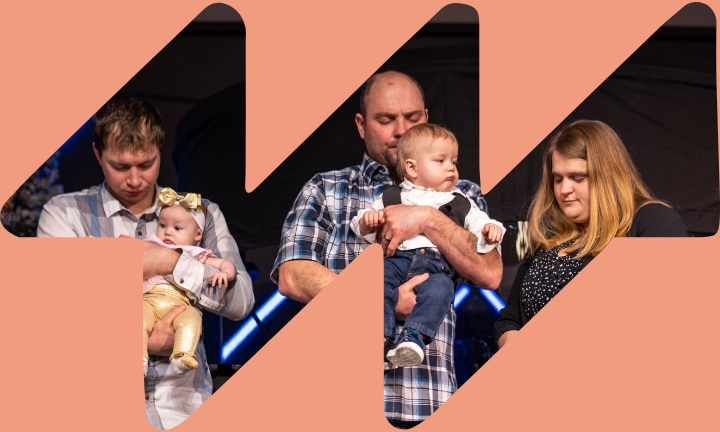There are two stories in the Bible that are crucial. The first story is in Genesis 22. In obedience to God, Abraham and his son Isaac are climbing a mountain called Moriah. As they are climbing, Isaac, who is about 12 years old, notices something is wrong. They are headed to the top of this mountain to offer a sacrifice to God but Isaac notices that something is missing. He asks his father, Abraham, “…here is the wood, and here is the fire but where is the sacrifice?” Isaac had been through this process before, and he knew what was required in a sacrifice…an animal. Abraham merely answers his son by saying “the Lord will provide the sacrifice”. Little did Isaac know that the sacrifice could be him.
The second story is found in John 19. Jesus had been condemned by both the Jewish Council and the Roman government. They placed a cross on his back and he climbed to the place of execution, a mountain called Golgotha by the Romans but Moriah by the Jews. There are great similarities between these two stories. In Genesis 22 Abraham was willing to offer his son. In John 19, the Father was willing and did offer His Son.
Abraham had faith that his son would be resurrected or rescued from death, which he was. However in John 19, the Father led His Son up the same mountain and in essence, the Father killed his own Son. Abraham led his son to the mountain to be sacrificed and in John 19, the eternal Father, God Himself, led His son to the same mountain to be sacrificed. (Acts 2:23)
The issue I ask of Abraham is where did you get the faith to lead your son up that mountain, believing that God would provide His Son as the ultimate sacrifice for sin?
To find the answer to that question I must read Genesis 15, where the Abrahamic Covenant was made. I do not have space here to cover that covenant. Abraham had been promised a son, but he was approaching 100 years in life and his wife Sarah was approaching 90. He still has no son and humanly speaking, it is impossible to have a son at his age. Then, in Genesis 15, God asks Abraham to step out of his tent and look up at the stars and tells him, your seed shall be as numerous as the myriad of stars you see. “And Abraham believed the Lord and it was reckoned (entered into his account) as righteousness. Where did that faith of Abraham come from? By a miracle of faith that God gave him and that faith (believing) was imputed to him, making him righteous before God. It was not something Abraham did but what God did. Only He can create righteousness and remove unrighteousness.
The Apostle Paul picks up this Old Testament story in Romans 4. God sees things we do not see. God saw Isaac long before Abraham saw Isaac. In fact, Abraham had given up on a son, but God saw what Abraham could not see and Abraham’s faith allowed God to bring into existence that which did not exist before. That was Isaac. God worked through Abraham to bring His plan into existence. “God gives life to the dead and calls into being that which did not exist.” (Romans 4:17)
In Romans 4:18-19, regarding Abraham’s faith, it says, “In hope against hope he believed…and without becoming weak in faith he contemplated not his own body, now as good as dead…his faith did not waver in unbelief but grew strong in faith…”. Though Abraham saw no natural solution for a son he did not allow hope to die. Abraham did not allow circumstances to dictate to him. He looked beyond what he physically saw or believed. His faith did not waver.
Hebrews 11:1 says, “Now faith is the assurance of things hoped for, the evidence of things not seen” There are two key words here; “Assurance” and “conviction”. This is one of the only places in the Bible where faith is defined.
There are two facets of faith; first, an inner impression that carries a mental picture. We “see” or “feel” beyond what we can physically see or feel. Second, faith produces evidence so conclusive that it will produce a conviction.
This is what Abraham had. He stood under the starry sky that night. (Genesis 15) He saw more than the stars. God revealed something to him. What he saw and what he felt was more than visual, it was observed by his spirit. Hebrews 11 calls that “substance”. That “substance” produced “evidence” that led to “conviction”.
As I read through the rest of Hebrews 11, I see this very thing. Moses saw something bigger than Pharaoh’s kingdom. Moses saw “Him who is invisible…”. Faith will always see beyond the visual eyes or the textbook that I have read. It goes into the realm of the unknown. How do you see the indescribable or the unseen? It is seen only through the eyes of faith. That’s what made Moses the man he was-he saw beyond the human eye.
We live in a world of artificial technology today. Most of the artificial technology that we observe needs to be programmed. God does not have a “motherboard”. He does not need to be programmed. He is who he is.
“We have not declared to you cunningly devised fables. We were with Him. We heard Him. We were eyewitnesses of his Majesty. And so we have the prophetic word made sure to which you will do well to pay attention, as a lamp shining in a dark place, until the day dawns and the morning star arises in your heart.” (2 Peter 1:16)
We need that “…more sure word of prophecy…” today.



